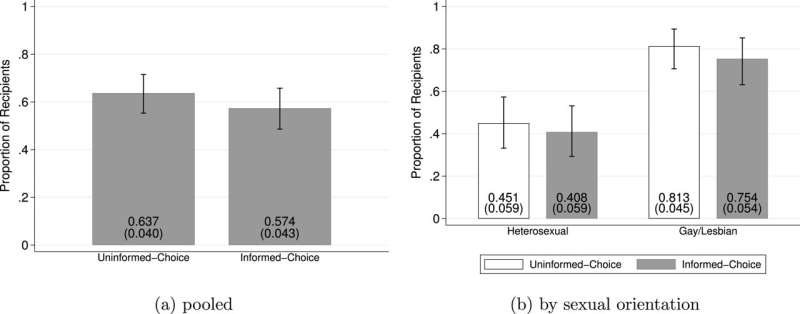This article has been reviewed according to Science X's editorial process and policies. Editors have highlighted the following attributes while ensuring the content's credibility:
fact-checked
trusted source
proofread
Study examines women's strategic concealment of LGBTQ+ affinity

At a time when LGBTQ+ rights are increasingly the subject of public discussion, it is important to consider the effect on those who share an affinity with that community. Rensselaer researchers Billur Aksoy and Ian Chadd have conducted an experiment to determine whether individuals strategically mask signals about their affinity with the LGBTQ+ community in response to anticipated discrimination.
Their paper, "Sexual identity, gender, and anticipated discrimination in prosocial behavior," is published in the current issue of the European Economic Review.
Aksoy and Chadd, both assistant professors of economics at Rensselaer Polytechnic Institute, and their co-author Boon Han Koh of the University of East Anglia developed an online environment where recipients were given the opportunity to signal their LGBTQ+ affinity through choices of icons including the Pride flag. Decision-makers, upon observing these signals, decided how much money to share with their recipients.
The researchers found that, when informed that these signals would be revealed to decision-makers, women, both heterosexual and lesbian, were significantly less likely to signal an affinity with the LGBTQ+ community, whereas the results for men were not statistically significant. Although decision-makers did not differ in their treatment of individuals based on these signals at the aggregate, their political stances on social issues and their views about LGBTQ+ rights mattered in shaping their sharing behavior.
"We find that anti-LGBTQ+ attitudes matter for economic outcomes: decision-makers who harbored more bias against the LGBTQ+ community shared less of their earnings with recipients they perceived to be LGBTQ+," Chadd said.
The paper conjectures that awareness and experiences of discrimination around other dimensions of identity, particularly unequal treatment of women along gender lines, made women in the experiment more likely to mask LGBTQ+ affinity. This is bolstered by a documented gender gap in beliefs about the prevalence of discrimination against sexual minorities.
"We see that women, independent of their sexual orientation, are more likely to expect discrimination against sexual minority individuals. This, in turn, is likely causing them to conceal signals of their LGBTQ+ affinity," Aksoy said.
The researchers believe that understanding the behavior around signaling LGBTQ+ affinity is important given that intentional concealment of identity creates stress, and that they may also avoid certain career fields and institutions due to anticipated discrimination.
"Economics experiments are a powerful tool to investigate causal relationships in a controlled environment, with real monetary consequences to decisions. By using these tools, we can gain a better understanding of the economic lives of LGBTQ+ individuals and the unique challenges they face in their everyday decisions and interactions," Aksoy said.
More information: Billur Aksoy et al, Sexual identity, gender, and anticipated discrimination in prosocial behavior, European Economic Review (2023). DOI: 10.1016/j.euroecorev.2023.104427
Provided by Rensselaer Polytechnic Institute


















